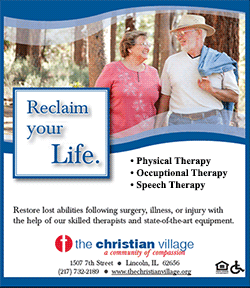(This week's guest writer is by First Presbyterian
member, Marsha Dallas. Marsha is an educator here in
Lincoln and chairs the Mission Committee of First
Presbyterian Church. When she isn't teaching,
reading, or writing, she is enjoying lively
conversations with her family and finding ways to
make her friends laugh.)
Building bridges; itís hard work, but when the work
is complete it saves many people time and energy. We
can think of it that way in respect to human
relationships. If we work to build bridges of
understanding we can avoid the negative efforts of
hate and war.
I had the opportunity this week to hear two human
bridge builders speak. The first was Marion
Blumenthal Lazan, a survivor of the Nazi
concentration camps of World War II. The second,
Eboo Patel, is the founder and executive director of
the Interfaith Youth Core.
Marionís experiences were horrific, but she held out
hope for her family through an imaginary game of
finding four perfect pebbles. She was 10 when
Russian troops liberated their camp. All four
members of her immediate family had survived, but
her father succumbed to illness after the
liberation. Marion, her mother, and her brother
emigrated to the United States. She and her husband
now travel around the country and the world to share
her message of courage and to ask her audiences to
never allow such atrocities to happen again.
Marionís message to the students at Lincoln Junior
High was to respect each other, especially to
respect others who are different. She asked them to
reach out to new students and create those human
connections that bring peace in the world. She told
the students that they would be the last generation
to hear her story firsthand, and she hoped that they
would share her story with their children and
grandchildren.
|

In contrast to Lazan, Eboo Patel is relatively young
and a Muslim. He grew up in a wealthy Chicago suburb. He attended
the University of Illinois and became interested in working to
overcome the divisive nature of religious beliefs. He realized that
all religious traditions promote kindness, service, and hospitality
to strangers. Instead of focusing on the beliefs that divide us as
people with different orientations around religion, we should create
bridges of acceptance by seeking out those similar beliefs. He
expressed that it is not our mission to reach agreement on divisive
issues. We should work on building relationships and respect. His
focus is on young adults, because their energy and openness can join
to support multi-faith service initiatives.
Building bridges is an important job. Itís not a mission that will
get done immediately. We may still be building far into the future.
But we should not forfeit the conversation to others who want to
yell louder and spread hate. If we donít speak up to preserve human
dignity and build connections with others, we risk losing the chance
to deepen our own faith.
[Marsha Dallas of First Presbyterian Church in Lincoln] |